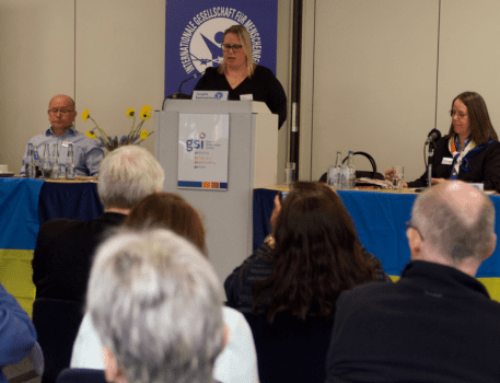
While a long-standing and successful fair trial monitoring project in Ukraine was put on hold due to the war, the Armenian section of ISHR, which recently joined the Ukrainian project as a monitoring newcomer, is currently continuing the Fair-Trial monitoring in Armenia:
Monitoring of a civil case The Social Security Service of the Ministry of Labor and Social Affairs of the Republic of Armenia against A.S. on a claim for confiscation of a pension received after the death of a pensioner.
On May 19, 2022, a civil case was heard in the Court of First Instance of Ararat and Vayots Dzor regions, according to the suit of the Social Security Service of the Ministry of Labor and Social Affairs of the Republic of Armenia against A.S.
The court session was scheduled for 09:15. Despite being notified of the hearing, neither party was present at the hearing. After the opening of the court session, the secretary stated that the parties were not present at the court session. At the same time, the lawsuit was filed a long time ago, in 2014. The case was adjourned and transferred to another judge. The reason for the suspension of the case was the announcement of the accused on the wanted list. The suspension of the case for such a long period was also due to the norms of our legislation. The Civil Code, in force since 1998, provides that when a case is suspended, when it is transferred to another judge, it remains suspended until the circumstances on which the case is based are eliminated. The Civil Code, in force since 2018, amends this provision, establishing that when a new judge accepts a suspended case, the judge must accept the case, resume the trial to clarify the circumstances of the suspension.
The court named the date of publication of the final judicial act as 09/06/2022.
As an observer, I note that the lawsuit was filed in court in 2014. There have been several changes in the composition of the judge. The case was suspended and then reopened. In my opinion, such a long suspension of the court session is unlawful and is a violation of paragraph 1 of Art. 6 of the Convention regarding the violation of a reasonable time for the proceedings. Without any reference to specific terms, Art. 6 of the Convention directs national legislation (as well as law enforcers) to ensure effective guarantees for all parties – participants in the process from excessive delay in the judicial procedure. The ECtHR emphasizes that, by virtue of Art. 6 of the Convention, justice must be administered without delays that could undermine its effectiveness and credibility (Judgment of the ECtHR dated 31.03.1992 X. v. France, N 18020/91, § 49). In this case, there is a delay in the process not only on the part of the court, but also on the part of the plaintiff. When determining the reasonableness of the length of the trial, the European Court also takes into account such an aspect as the behavior of the applicant at the trial. Prolongation of the process due to the fault of the applicant may take place, for example, in cases where the applicant or his lawyer did not appear at court hearings in national courts and (or) did not comply with other procedural requirements, or the applicant sent many petitions and requests to the court in relation to the case, etc. .d. (Judgment of the ECHR of December 22, 2009 in the case of Lekhanova v. Russia, N 43372/06, § 42).
In addition, when determining the reasonableness of the length of the trial, the European Court also takes into account the conduct and good faith of the court. When deciding whether there has been a violation of a reasonable time for the trial, the European Court proceeds from an assessment of the behavior of the judge (court) directly considering the case. In other words, the basis for the conclusion about the violation of the requirement of reasonableness of the trial period is the assessment of the actions of the court and its good faith in the consideration of the case: in a situation where the national court is unreasonably inactive for a long time or makes a number of errors that unreasonably lengthen the period of the trial, there is a violation reasonable time. Therefore, even a delay in the provision of a judicial act in the case is regarded as a delay in the trial due to the fault of the court (ECHR judgment of January 13, 2005 in the case of Rush v. Russia, N 28954/02, § 25).
I must note that I did not notice any violations of human rights during the court session.
Anna Yeranosyan, member of the ISHR Armenia monitoring group








Leave A Comment